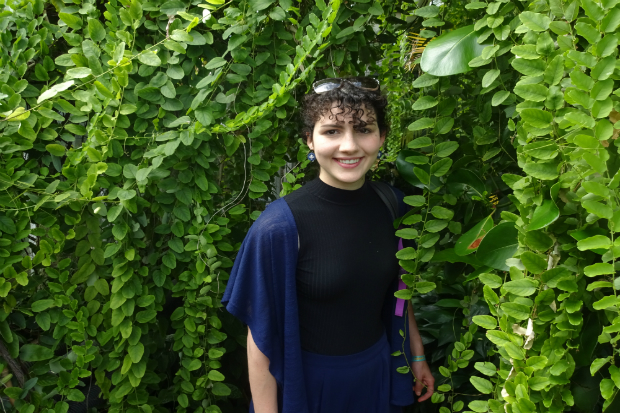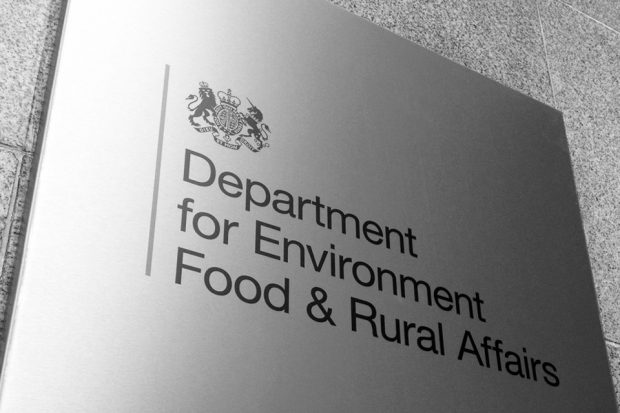 During my final year as a vet student at the University of Cambridge it was a privilege to be invited to spend a day with Christine Middlemiss, the UK Chief Veterinary Officer (CVO), and experience first-hand some of the work vets are doing at this significant time in the history of the Civil Service. I have had a longstanding interest in the work of government vets, which combines many different avenues of interest both within and beyond the traditional realms of veterinary medicine, and my time with the CVO brought an exciting new insight into the day-to-day practicalities of employment in this non-clinical, veterinary specific role.
During my final year as a vet student at the University of Cambridge it was a privilege to be invited to spend a day with Christine Middlemiss, the UK Chief Veterinary Officer (CVO), and experience first-hand some of the work vets are doing at this significant time in the history of the Civil Service. I have had a longstanding interest in the work of government vets, which combines many different avenues of interest both within and beyond the traditional realms of veterinary medicine, and my time with the CVO brought an exciting new insight into the day-to-day practicalities of employment in this non-clinical, veterinary specific role.
Before applying to vet school, I undertook an Extended Project Qualification looking into the consequences of a specific infectious disease, Leptospirosis, on the national beef and dairy herd. Researching this, I first recognised the importance of the concept of a national herd when dealing with disease dynamics on a population-wide scale, and I began to appreciate the intricacies of the human-animal interface when considering control of a zoonotic disease.
The first few years of the veterinary course in Cambridge created a fertile environment for exposure to, and exploration of, the student One Health movement. The curriculum requires veterinary and medical students, and sometimes biological science students, to work alongside each other, and serves to highlight the potential for the health and welfare of the humans, animals and environment to be effectively considered synchronously. I was chosen as President of Cambridge University One Health Society and was able to build the society’s presence in the University and to network beyond the student body, building connections with a diverse array of individuals and organisations, all of whom play roles improving the health and welfare of human and animal populations. Engaging with experts from Public Health England, the Animal and Plant Health Agency (APHA) and Non-Governmental Organisations gave many opportunities to benefit from some of the wide range of expertise which the One Health movement encompasses.
Specialising in Pathology during my third year was a welcome opportunity to focus on the dynamics of infectious disease and served to highlight the importance of epidemiology in orchestrating effective disease control. Disease must be fought on the population level at which it operates. In a globalised society, where there are transmission routes for many diseases across the world, control demands a coordinated approach which recognises the international scale of many core issues in order to effectively provide for each human being, each privately owned herd and the individual animals involved.
The Veterinary Public Health element of the curriculum here in Cambridge provides a broad overview of the framework of public health from the international to the local level. Pursuing my interest in this area, I have been able to add to my appreciation of the function of veterinary professionals in the provision of effective public health through extracurricular activities. These have included the VPHA Masterclass, the APHA Policy Week and attendance at the VPHA and AGV Biannual Conferences.

Having first met Christine at the VPHA and AGV Biannual Spring Conference 2018, we arranged a date for my visit to Nobel House in late February 2019. On arrival, I had a whistle-stop tour of Christine’s office and was introduced to the team. For the rest of the day, I shadowed Christine through her busy schedule of multiple back-to-back meetings. As different civil servants and visitors entered the evolving discussions, I gained a fascinating insight into the nature of some government veterinary work, especially as the technicalities are reviewed, policies structured and plans made in preparation for the possible repercussions of Brexit.
As a veterinary student, it was a great experience to be able to appreciate the skills of those in the veterinary profession in action beyond the clinic, using their expertise in the national interest and working with an international outlook. The huge diversity of the veterinary profession is one of its many appeals, giving its members the capability to contribute to human and animal welfare on both an individual and population scale. While it may be an over simplistic cliché that prevention is better than cure, the preventative endeavours of veterinary professionals working on a national scale supports the health and welfare of the many individual animals that make up the national herds and flocks. Many thanks are due to Christine and her colleagues for this unique opportunity to join them working at a government level, for the very warm welcome and for taking the time to give me an amazing experience at this busy period in the history of the Civil Service.
Having now qualified as a vet, I am due to start my first job as a clinical veterinarian in mixed practice but my experiences in the field of veterinary public health and with Christine and her colleagues are sure to stay with me. It is no departure from the core tenet of veterinary medicine to communicate, coordinate and work with other professionals and experts on researching the science behind the veterinary body of knowledge, developing policies in the meeting room and implementing them in the field. The skills I hope to develop as a clinical vet would no doubt be a useful asset should the twists and turns of any future career take me into government work myself.
